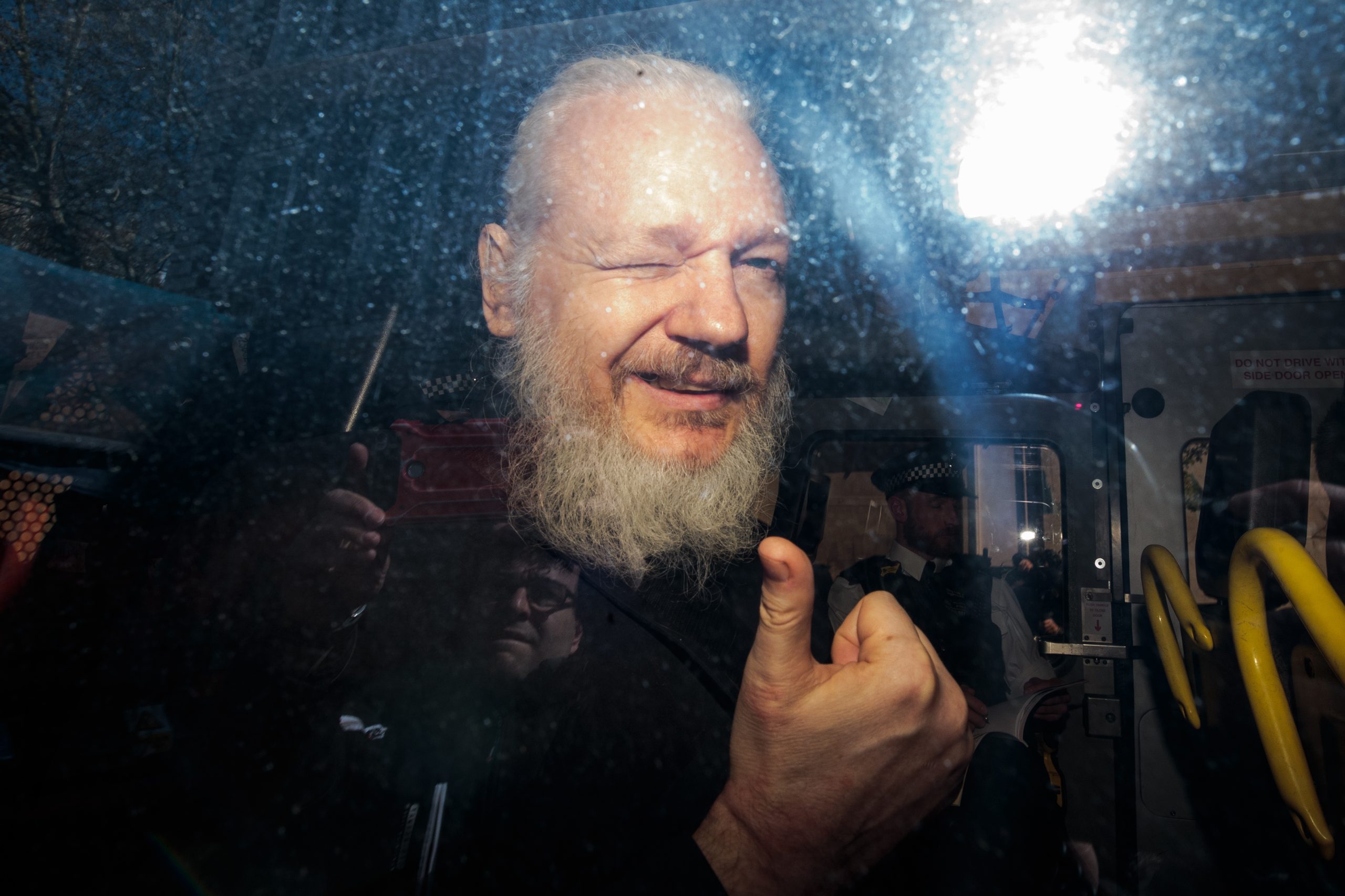British police arrested Wikileaks founder Julian Assange on Thursday. He had been hiding in the Ecuadorian Embassy in London since 2012 and was arrested after the Ecuadorian government invited the Metropolitan Police Service into the embassy to remove him. Assange was initially arrested for jumping bail in 2012, but the Metropolitan Police Service subsequently announced that he had been "further arrested on behalf of the United States authorities."
After Assange's arrest, the US Justice Department unsealed its indictment against him. The indictment focuses on Assange's role in helping Chelsea Manning steal classified information from the US military.
In 2010, "Assange agreed to assist Manning in cracking a password stored on United States Department of Defense computers," the indictment charges. Manning allegedly provided Assange with the hash of a password and asked Assange to crack it.
The indictment says that the hashed password was only available to those with administrative privileges, which Manning didn't have. However, she "used special software, namely a Linux operating system, to access the computer file and obtain the portion of the password provided to Assange."
The government says that the password would have allowed Manning to log in to computers as an administrative user, making it easier for her to cover her tracks as she downloaded additional sensitive documents.
However, it seems that Assange never succeeded in cracking the password. "On or about March 10, 2010, Assange requested more information from Manning related to the password," the indictment states. "Assange indicated that he had been trying to crack the password by stating that he had 'no luck so far.'"
While Assange wasn't successful in cracking the password, the US government is charging him with conspiracy to hack military computers based on his attempt to do so.
Assange wore out his welcome at the Ecuadorian embassy
The UK government has been seeking Assange's arrest for years, but it had been stymied by Ecuador, which shielded him from arrest by allowing him to stay in its London embassy.
Ecuador first offered asylum to Assange under former President Rafael Correa, an ally of former Venezuelan President Hugo Chávez, who relished taking a confrontational stance toward the United States. But Correa's successor, Lenín Moreno, has taken a more conciliatory stance toward the US.
Last year, Moreno's government presented Assange with a new, stricter set of conditions for his continued stay at the embassy. Assange was asked to do a better job cleaning the bathroom and other spaces inside the embassy. He was also asked to do a better job cleaning up after his pet cat—and warned that otherwise Assange would be asked to "deliver the pet to another person or an animal shelter" outside the embassy.
On a more serious note, Assange was asked to avoid "carrying out activities that could be considered as political and interference in internal affairs from other States." Of course, the entire mission of Wikileaks is to publish documents that could prove embarrassing to the world's governments.
Assange responded by suing the Moreno administration in Ecuadorian courts, but his lawsuit was dismissed.
In a video posted to Twitter on Thursday morning, Moreno announced that Assange's "discourteous and aggressive behavior" had made his continued stay at the embassy "no longer viable."
He said Assange installed unauthorized electronic equipment in the embassy, blocked security cameras, accessed security files of the embassy, and "confronted and mistreated guards."
He also said that Assange had "violated the norm of not intervening in the internal affairs of other states." He noted that in January, Wikileaks released documents from the Vatican. "Assange is still linked to Wikileaks and therefore involved in interfering with the internal affairs of other states," Moreno concluded.
Moreno says the last straw came two days ago, when Wikileaks "threatened the government of Ecuador."
It's not clear what this is referring to, but Moreno's beef with Wikileaks has gotten increasingly personal in recent weeks. Last week, Moreno told an Ecuadorian radio station that Assange doesn't have the right to “hack private accounts or phones.”
"Moreno made the comments on Assange after private photographs of him and his family at a time years ago when they were living in Europe circulated on social media," Reuters reported. "Although Moreno stopped short of explicitly blaming Assange for the leak, the government said it believed the photos were shared by WikiLeaks."
On Thursday morning, the Ecuadorian government revoked Assange's asylum and invited the British police to enter the embassy and take Assange into custody.
Former president Rafael Correa denounced the decision on Twitter, describing Moreno as "the greatest traitor in Ecuadorian and Latin American history."


